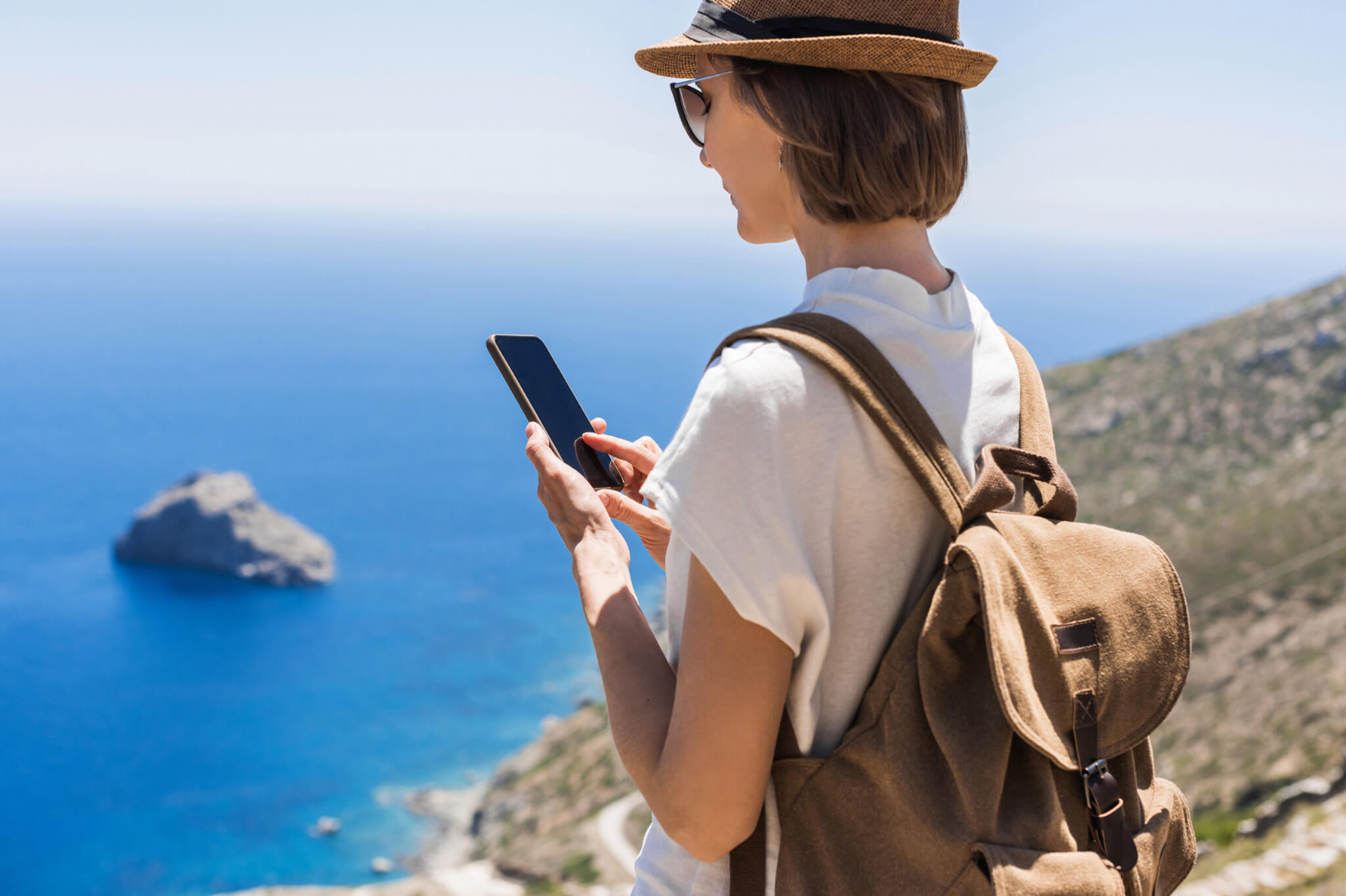
Travel tech essentials: How to stay connected on the go this summer
As summer travel kicks off, staying connected on the go is essential. Whether you're a seasoned adventurer or a first-time traveler, navigating global connectivity can be tricky. This guide equips you with tech essentials for a smooth journey: explore data roaming options, consider local or global SIM cards, and download offline maps for worry-free navigation.
After what has felt like an eternity, summer is finally with us, heralding the departure of many of us on long awaited foreign travels. Whether you are a seasoned business traveller, or a regular jet setting tourist, staying connected is more important than ever. But navigating the world of global connectivity and travel tech can be somewhat overwhelming. It can also be very costly if you are not aware of recent regulations. From gadgets to apps and how to avoid racking up eye watering roaming bills, read on for an essential guide to ensuring a seamless and connected travel experience.
Staying Connected:
Previously, EU regulations ensured phone plans offered the opportunity to "roam like home" within the European Union. This meant you could use your phone's minutes, texts, and data allowance in the same way you would in the UK. However, after the UK left the European Union, these regulations no longer apply. As of now, July 2024, major UK mobile network providers like EE, Vodafone, Three, and even some sub-brands like VOXI, don't automatically include EU roaming in their pay-monthly and pay-as-you-go deals.
For UK travellers heading to Europe this summer, make sure you check your mobile plan to see if your existing plan includes any EU roaming allowances. Some budget networks and smaller providers might still offer limited EU roaming as part of their plans. If not, many networks offer roaming add-ons that provide data, calls, and texts for a specific timeframe while travelling in Europe.
You could also consider purchasing a local SIM card in your destination country. This can often be the most cost-effective option for data usage during your trip. Alternatively, for extended travel or frequent international trips, a global SIM card can be a cost-effective option. These SIM cards are pre-loaded with data and minutes, allowing you to make calls, send texts, and access the internet without relying on your home carrier's roaming charges.
Once you have your data roaming enabled, a mobile hotspot can be a lifesaver! It transforms your phone's data connection into a WiFi network, allowing you to connect your laptop, tablet, and other devices to the internet on the go. But please do check before you log on, you don’t want to get caught out like Scottish health secretary Michael Matheson, who managed to rack up an £11k data roaming bill on his government ipad during a family trip to Morocco!
Getting around:
Getting lost can be part of the adventure, but sometimes you just need to know where you're going. Downloading offline maps and navigation apps like Google Maps (with offline map functionality) ensures you can navigate unfamiliar cities and regions even without an internet connection.
Staying charged:
A high-capacity portable charger is your lifeline in a world of battery-dependent devices. Look for one with enough power to charge your phone multiple times (consider a 10,000 mAh or higher capacity). Choose a model with multiple charging ports for simultaneous charging of your phone and other devices (e.g., headphones or camera). Packing a universal power adapter eliminates the need for a collection of country-specific plugs. Choose one with built-in surge protection for added peace of mind regarding voltage fluctuations. For eco-conscious travellers or those venturing off the beaten path, a solar charger can be a game-changer. It allows you to harness the power of the sun to keep your devices charged, especially in areas with limited access to electricity.
Entertainment on the go:
Did you know that the impact of the constant hum of an aeroplane engine on our bodies is a major part of the reason why we often feel so exhausted after a long distance flight? This is why we strongly recommend getting a pair of noise cancelling headphones, which can block out the noise of aeroplanes or crowded public transportation. This also allows you to enjoy audiobooks, podcasts, or music without distractions, making long journeys more enjoyable.
Make sure you also remember to load up your e-reader or tablet with ebooks, audiobooks, or downloaded movies and TV shows before your trip. This ensures you have plenty of entertainment options, especially on flights or during downtime when internet access might be limited. From personal experience this is also essential for keeping children entertained during long journeys, especially if there is limited or no mobile signal.
Security and organisation:
Being conscious of security is vital when travelling. Make sure you protect your precious travel photos and memories by backing them up to a cloud storage service. This ensures you have a copy even if your phone or device is lost or damaged. If you're using public WiFi networks at airports or cafes, consider using a VPN (Virtual Private Network) to encrypt your data and protect your privacy. This is especially important when accessing sensitive information like bank accounts or email. Stay organised with travel organiser apps that allow you to store flight information, booking confirmations, travel documents, and itineraries in one place. These apps can also help you manage your budget and expenses on the go.
By taking a bit of time to organise your tech essentials ahead of time, you can give yourself peace of mind when travelling, so you can focus on the more important parts, like seeing some sights, getting stuck into the local culture, and enjoying yourself.
….oh, and don’t forget to send us a postcard!













